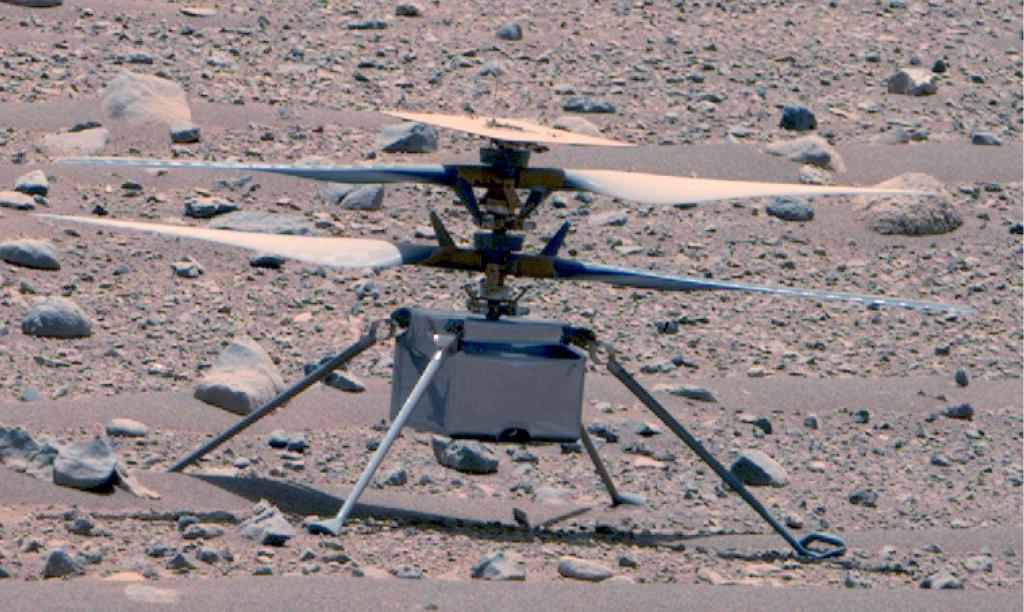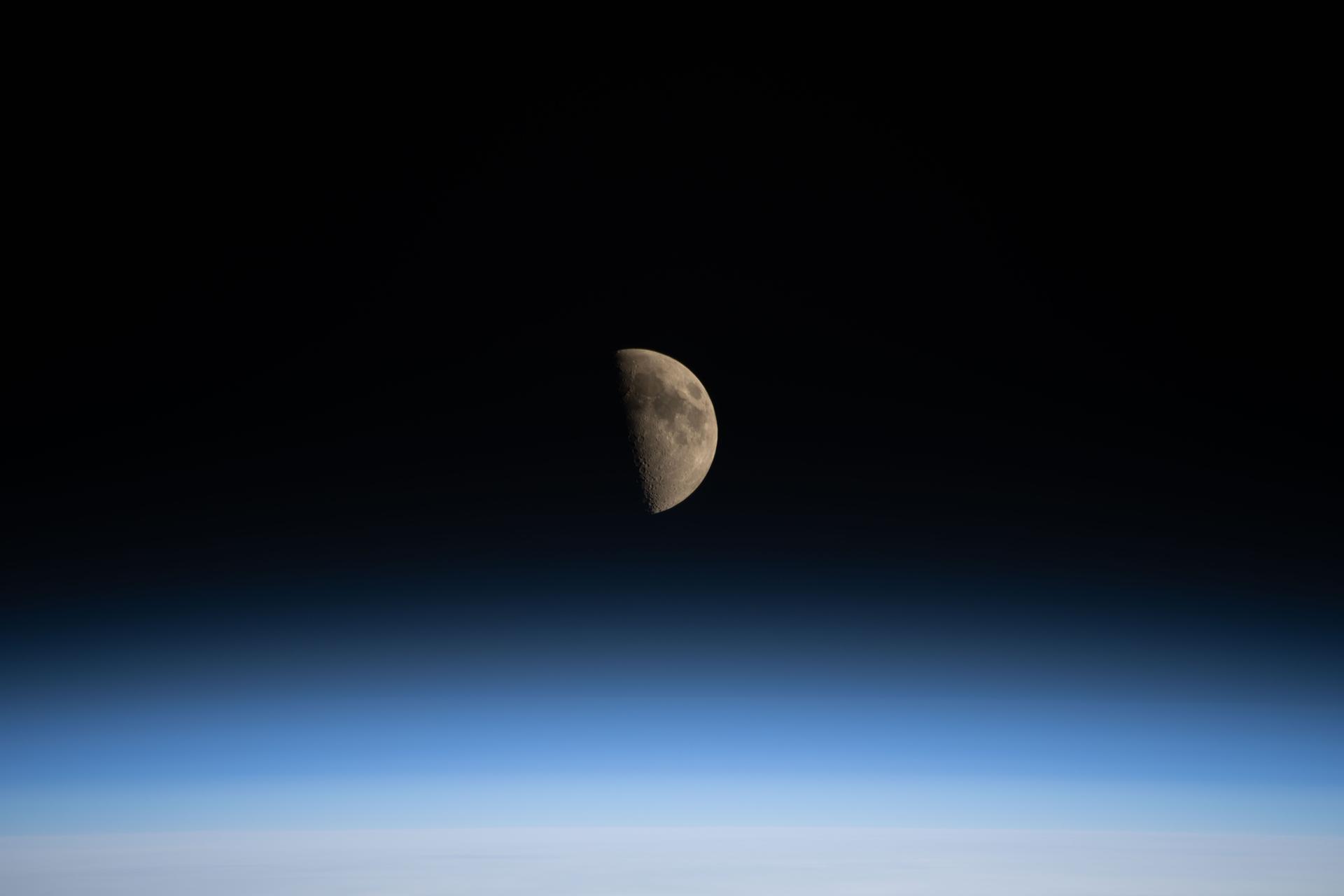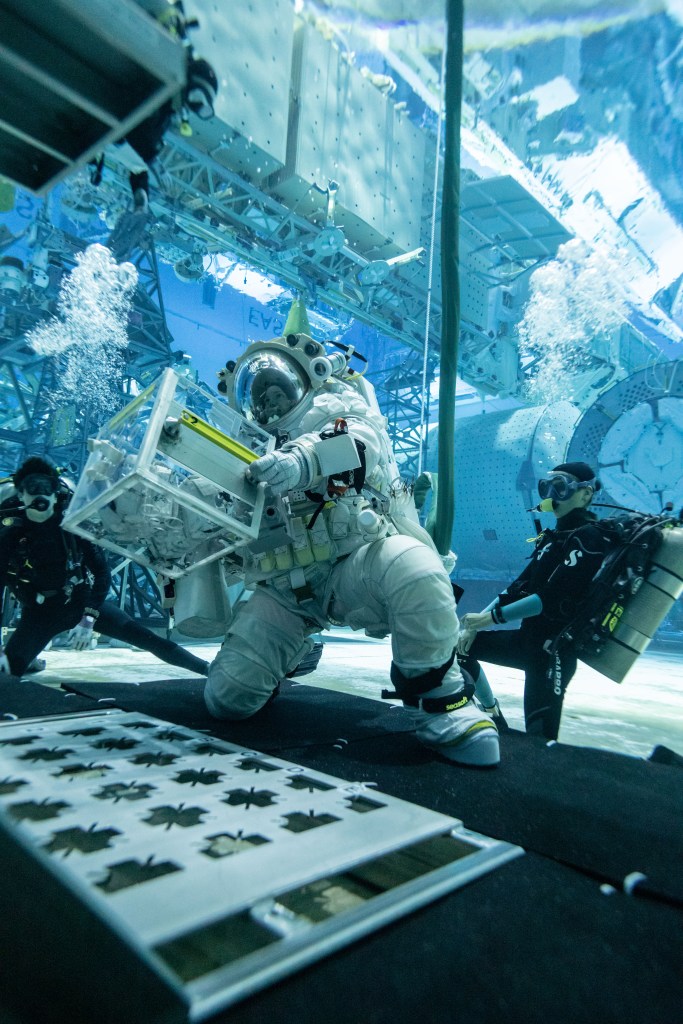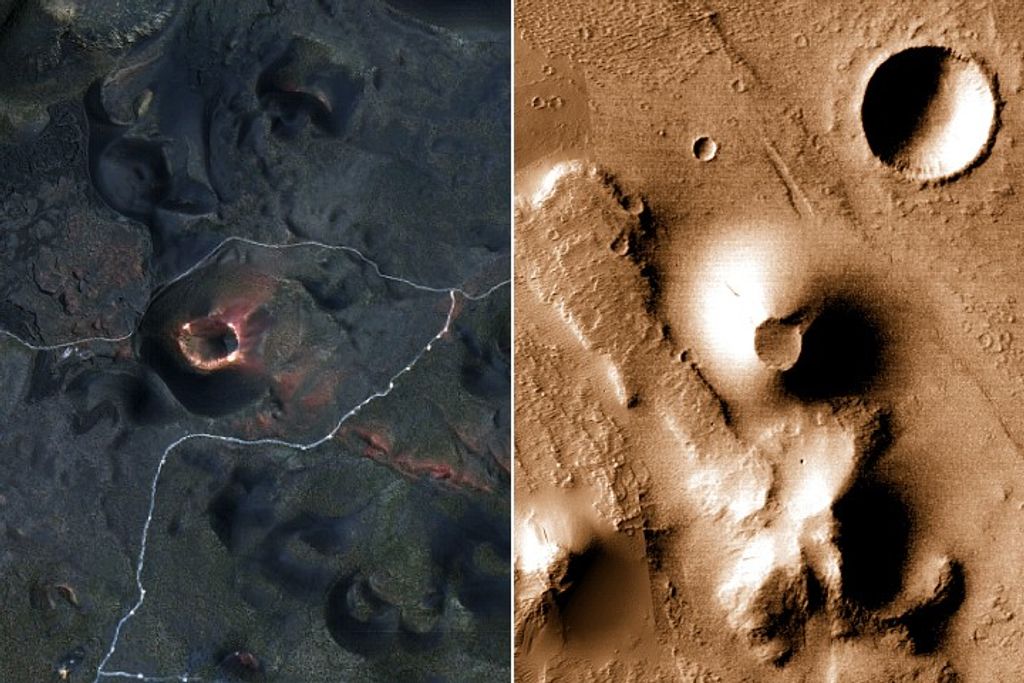
Audience
Educators
Grade Levels
Grades 5-8, Grades 9-12
Subject
Mathematics, Physical Science, Technology, Algebra, Measurement and Data Analysis, Flight and Aeronautics, Forces and Motion, Gravity, Space Vehicles
Type
Lesson Plans / Activities, STEM Resource Collections, Videos
Next Generation Science Standards: ETS1-2, MS-PS2-2, HS-PS2-2
Classroom Connection
In this activity, students design and create a simple helicopter to learn about the design of NASA’s Ingenuity aircraft and how Newton’s third law also applies to rotary-winged aircraft.
The Science Behind the Combo
Newton’s laws of motion apply on Mars just as they do on Earth. Understanding this action/reaction concept, in addition to that of fluid dynamics (i.e., an atmosphere interacting with a propeller or wing), will facilitate the development of future aircraft capable of flight on Mars or even Titan, Saturn’s largest moon. An eight-bladed quadcopter, NASA’s Dragonfly, will take advantage of Titan’s dense atmosphere — four times denser than Earth’s — to sample and examine sites around this icy moon.
Combo Resources:
Testing the Mars Helicopter Delivery System on NASA’s Perseverance Rover
Educator Guide: Rubber Band Helicopter Engineering Challenge
Student Guide: Rubber Band Helicopter Engineering Challenge
Student Planning Sheet: Engineering Design Process
Video: Video and Audio of Fourth Ingenuity Flight
Resource: The Lift Equation
Teacher Tips:
- Mix and match the combo resources to suit your goals, allotted time and available materials.
- This activity references Newton’s third law and the associated concept of torque generated by rotating propellers.
- Host a class discussion, as advised in the “Teacher Directions” portion of the educator guide, on the design of Ingenuity and what engineers had to consider to achieve mission success. Consider allowing students to use a planning sheet for applying the engineering design process to focus the discussion. Consider aircraft mass and volume limitations, the atmosphere of Mars and the acceleration due to gravity on the planet.
- Encourage advanced students to analyze the variables within the lift equation and determine what Ingenuity’s flight profile might look like on Earth compared to Mars.




















